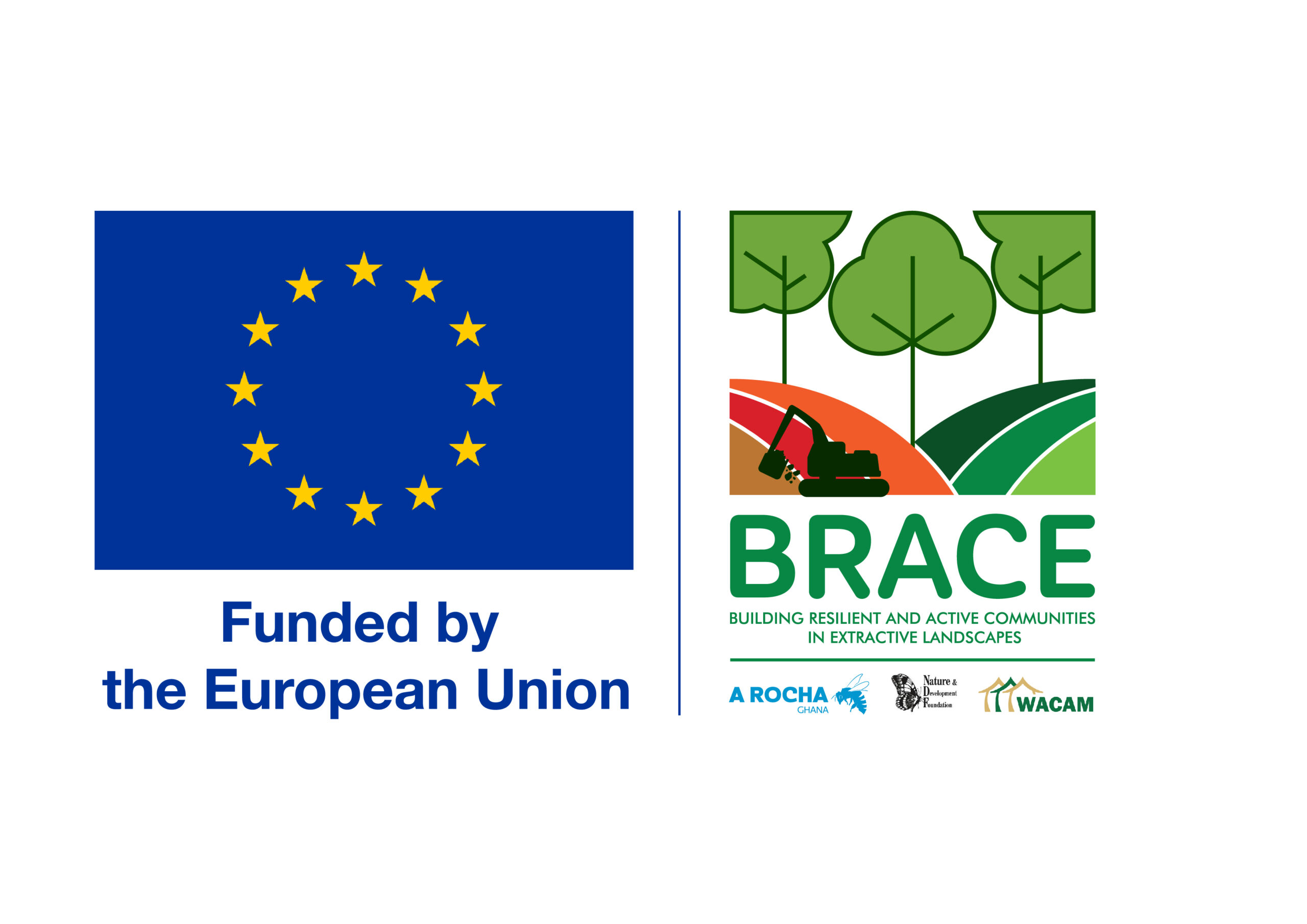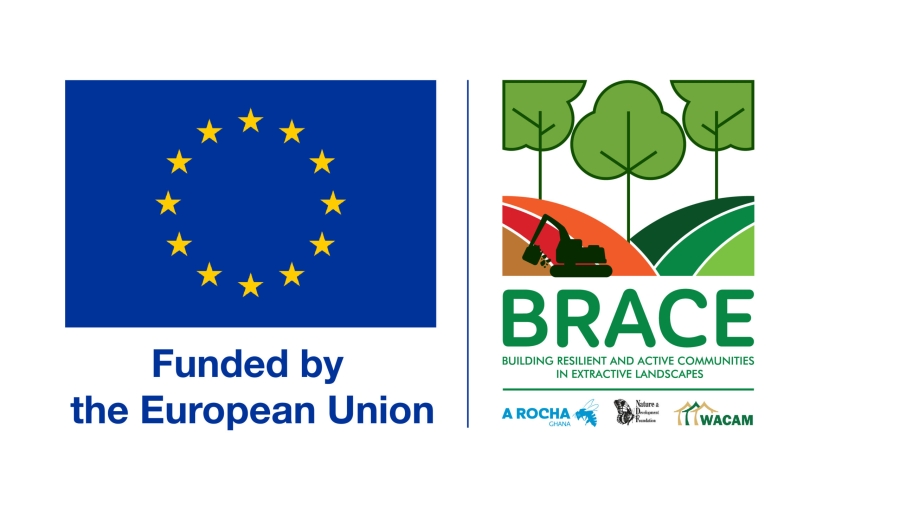The European Union-funded Building Resilient and Active Communities in Extractive Landscapes in Ghana (BRACE) project, seeks to ensure Human Rights adherence, transparency and accountability, and respect for communities’ ERs in mineral governance.

Project Context
Ghana’s extractive sector remains one of the country’s biggest exports as it contributes over a third of export revenues. There are plans to make Ghana the mining hub of Africa. Already, the sector has adversely impacted lives and livelihoods, stripping communities off their rights leaving them with no voice and channels to seek justice.
Mining licenses are often granted without the requisite due diligence, particularly in socially and environmentally sensitive areas such as farmlands, forests, and rivers, despite bans on prospecting in forests and mining in rivers. The boom and expansion in the extractive sector for gold and transition minerals has led to the displacement of communities, loss of farmlands, and contamination of water sources with mercury, zinc, and arsenic, resulting in exposure to health risks ranging from respiratory problems to cancer. Compensation for affected individuals is often inadequate, with minimal benefits flowing back to the communities impacted.
Furthermore, there’s a looming threat to Ghana’s Forest Reserves (FRs), critical ecosystems where communities, especially women, rely on non-timber forest products (NTFPs) for their livelihoods and benefit from various ecosystem services essential for social well-being. The enactment of the ‘Environmental Protection (Mining in Forest Reserves) Regulations L.I 2462′ in November 2022 has opened the door to mining activities within Forest Reserves, jeopardizing their ecological integrity and sustainable management. Already, several mining permits have been issued targeting globally significant biodiversity areas (GSBAs), demanding urgent policy and legal reviews to safeguard communities’ rights to benefit from the public goods and services provided by forests.
In response to these challenges, the European Union-funded Building Resilient and Active Communities in Extractive Landscapes in Ghana (BRACE) project has been initiated. The project seeks to ensure human rights adherence, transparency and accountability, and respect for communities’ environmental rights in mining and mineral governance in Ghana.
Goal
Contribute to achieving sustainable and equitable environmental management and good natural resource governance by communities, government, and private extractive sector actors in Ghana.
Target Landscapes
Eastern, Ashanti, Western North, Western, and Ahafo Regions.
Strategies for effective implementation of the intervention include
- Empower selected stakeholders to hold institutions accountable over environmental damage, poor governance, and environmental rights violations in Ghana’s extractive sector by 2025.
- Capacity development of stakeholders as Community Paralegals to use community-based courtroom advocacy to seek redress over natural resources violations and governance.
- Lobby and advocacy to seek redress over violations of environmental rights using Ghana’s Business and Human Rights Action Plan and complementary initiatives by end of 2025.
Strengthen local environmental protection and NR management through capacity development of CREMAs Executive Committees to implement their Action Plans with communities for sustainable NR use by mid-2026.
Expected Outcome
- Trained groups defend communities ERs/NRs through national and local level campaigns using evidence gathering, advocacy, and media reporting.
- Communities receive legal services through Community Paralegals, Community based Courtroom Advocacy (CCA), committed pro bono legal practitioners, and a Legal Access Funds.
- Strengthen collaboration among stakeholders to engage duty bearers and seek redress on extractive sector environmental and ER violations.
Project Duration: 3 YEARS.
Funded by: European Union
Project Implementing Lead: A Rocha Ghana
Implementing Partners: Nature Development Foundation
Wacam
